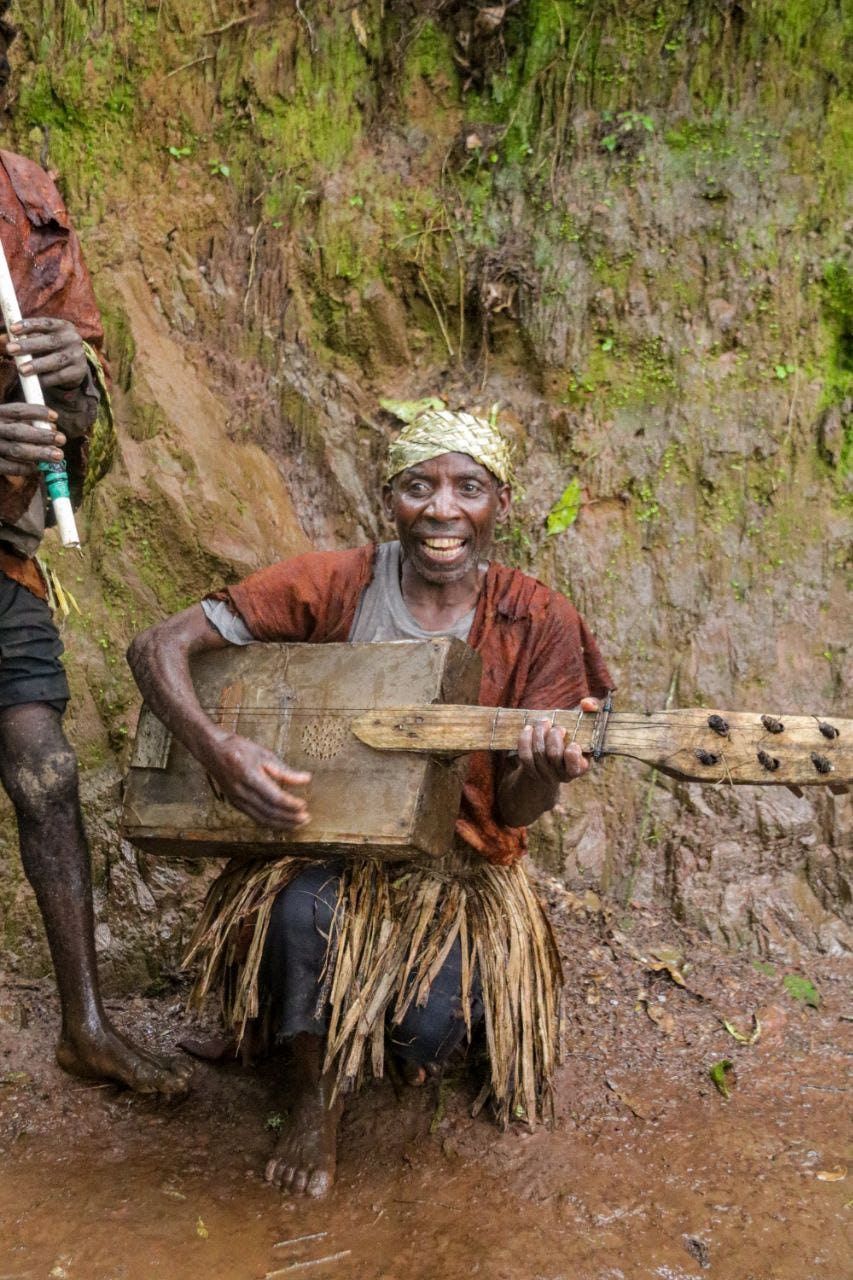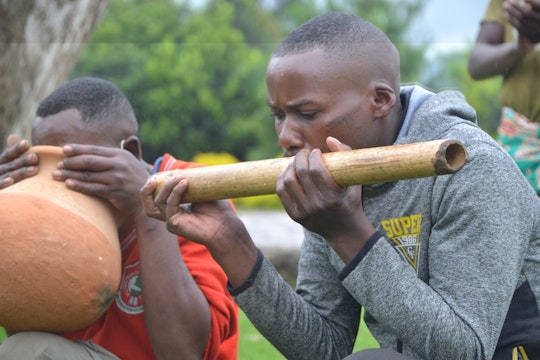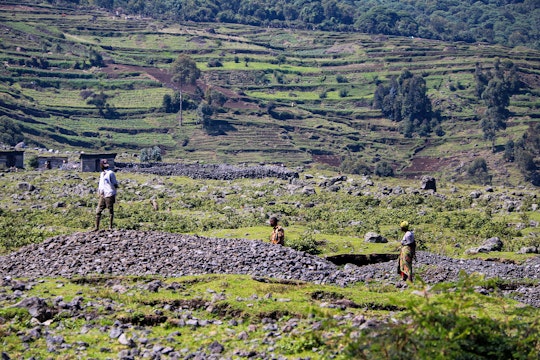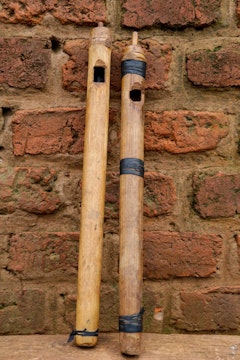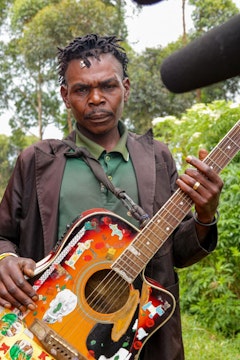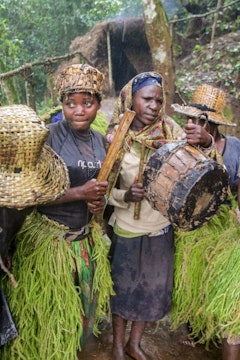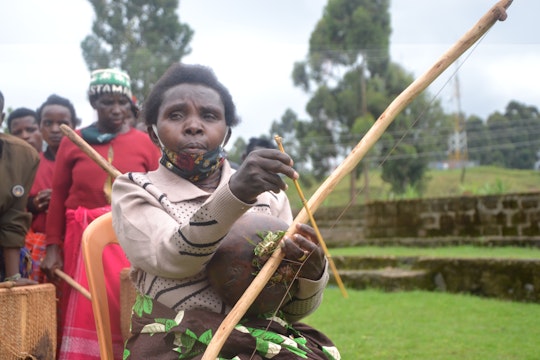Musical Diversity and Change
A year ago, when we visited the Batwa in Kisoro, they sang us "Iparake", a song that means "Park" and tells of Batwa life in the forest years ago
A year ago, when we visited the Batwa in Kisoro, they sang us "Iparake", a song that means "Park" and tells of Batwa life in the forest years ago
The song was different back then and was sung by a group of Batwa, with a female singer accompanied by drums, clapping and dancing.
A year later, "Iparake" was interpreted by two young Batwa who gave it a contemporary touch by accompanying themselves with a homemade guitar and a bass pipe to give rhythm to the song. A reggae atmosphere was added to the song with a modern harmony.
The duo of male artists sing in Kisoro's nightclubs, bars and small events, and aim to become commercial artists. This is a common trend among the Batwa, particularly among young people who are attracted by different music and culture. According to research, when communities are faced with inevitable changes due to globalization and other factors such as immigration, these changes are unavoidable.
As quoted by Nettl "One of the most obvious upsides to globalization in relation to music is the vastly increased access to modern technology. These days, a teenager in Jakarta can listen to a Peruvian folk song or Azerbaijan mugan at whim. Another benefit is the resultant greater cross-fertilization of music genres and music cultures, which has arguably increased musical diversity at a global level".
